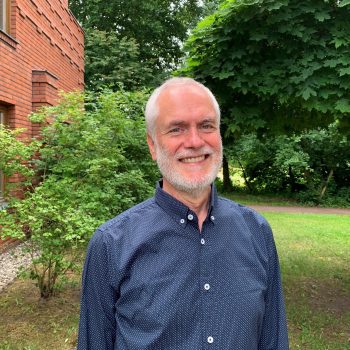Institute for Biblical Studies and Biblical Archeology
The archeological part of the Institute was founded at Theological Seminary Marienhöhe in Darmstadt, Germany, in 1990, but now belongs to FAU. Prior to the foundation, there had been intensive archaeological research under Prof. Udo Worschech from 1983 to 1991. Since then, archaeological work has been carried out continuously under the direction of Prof. Udo Worschech and later under the direction of Prof. Friedbert Ninow. Since 2017, La Sierra University in California, USA, and FAU have been organizing this as a joint project. Thanks to publications, lectures, and exhibitions, the Institute has already gained international recognition on its specific research field.
The archeological part of the Institute was founded at Theological Seminary Marienhöhe in Darmstadt, Germany, in 1990, but now belongs to FAU. Prior to the foundation, there had been intensive archaeological research under Prof. Udo Worschech from 1983 to 1991. Since then, archaeological work has been carried out continuously under the direction of Prof. Udo Worschech and later under the direction of Prof. Friedbert Ninow. Since 2017, La Sierra University in California, USA, and FAU have been organizing this as a joint project. Thanks to publications, lectures, and exhibitions, the Institute has already gained international recognition on its specific research field.
Central points of research are the excavation works in the Moabite city of Ar (Isaiah 15:1), nowadays el-Balu, considered to be the largest city in Jordan. By means of surface surveys, new locations are discovered and temporally classified, and their connections with social-geographical changes over the centuries are investigated. The aim is to put references to culture and history mentioned in the Old Testament between Israel and Moab on a scientific basis. The research findings were published in the archaeological magazine „Beiträge zur Erforschung der antiken Ard el-Kerak (Moab)“ until 2014. A final publication on the surveys is currently being prepared. The Institute owns extensive collections of ceramics, maps, and literature on its field of research. In the museum of Friedensau, there is an exhibition with some of the objects found in Ar.
The archaeological department of the museum of Friedensau provides a general overview over important periods of history and archeology of the Middle East with reference to the Bible, and especially to the Old Testament in adjacent rooms. The main focus is on great discoveries, important objects, and historical processes in religion and society. The museum owns some originals and replicas of that era and seeks some special items on loan from Israel and Jordan. Another room of the museum houses the ethnological exhibition of the nomadic-rural culture of modern times (approx. since 1850 up to now) from Jordan.
The Institute for Biblical Studies and Biblical Archaeology is also responsible for training in the biblical languages. A sound knowledge of the basic languages of the Bible is one of the prerequisites for the study of theology. These include Old Testament Hebrew and New Testament Greek. A Graecum or Hebraicum examination is offered after an intensive preliminary course and one semester of classes.
Another branch of the Institute is the link to the disciplines of Biblical Studies. The Institute offers the possibility for research work in the spectrum between the Old or New Testament and Levantine archaeology.
